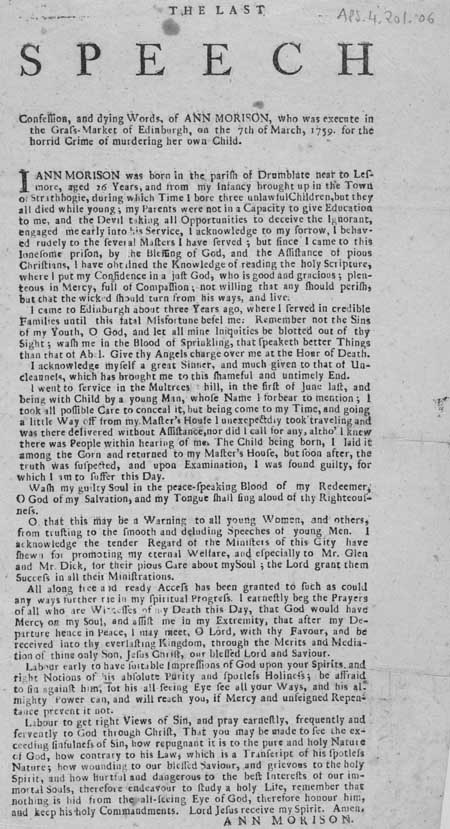Commentary
This crime report begins: 'THE LAST SPEECH Confession and dying Words, of ANN MORISON, who was execute in the Grass-Market of Edinburgh, on the 7th of March, 1759. for the horrid Crime of mudering her own Child.' The broadside carries no publication details. The 'last speeches' of condemned criminals were quite commonly reproduced on broadsides, but it is unlikely that many were published verbatim. Rather, they were probably written by anonymous broadside journalists, based on an amalgamation of facts that had emerged at the subject's trial, confessions or comments that the prisoner had made to visiting ministers after the trial, and a few stock sentiments of contrition, repentance and warning. Ann Morison's 'last words' very much follow the standard for this sort of broadside, beginning with a brief personal history, continuing with an admission of guilt and pleas for God's forgiveness, and culminating with lengthy warnings to other potential sinners. Reports recounting dark and salacious deeds were popular with the public, and, like today's sensationalist tabloids, sold in large numbers. Crimes could generate sequences of sheets covering descriptive accounts, court proceedings, last words, lamentations and executions as they occurred. As competition was fierce, immediacy was paramount, and these occasions provided an opportunity for printers and patterers to maximise sales.
View Transcription | Download PDF Facsimile
|
 |
Date of publication:
1759 shelfmark: APS.4.201.06
 View larger image
View larger image
|


